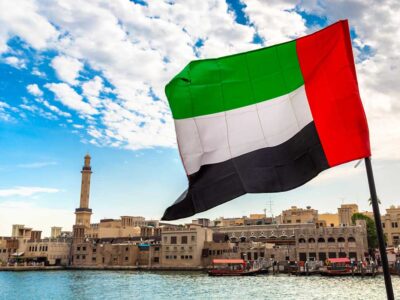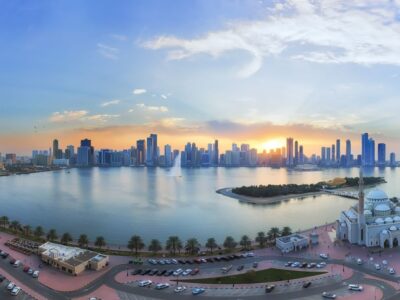On a cool January morning, residents across Dubai Media City were startled by tremors, with many initially believing they were experiencing an earthquake.
However, a look outside at the cityscape told a different story, as clouds of dust rose above a site which was once intended to be a 73-story multi-tower skyscraper.
A planned $6 billion mega-project overlooking the Palm Jumeirah in Dubai, the Dubai Pearl was first announced in 2002, but has been on indefinite hold since 2009. Since then, there have been a series of ownership changes in the project. Finally, the project was formally cancelled by the Dubai Government and demolition commenced in early 2023.
The ambitious development attracted many investors, some of whom have had their funds tied up in the project for over a decade. Investors in Dubai Pearl may now be able to recoup their money through a tribunal created to deal with failed real estate projects.
Almost 13 years after the investment was made, we recently assisted a client with successfully recovering their entitlements in connection with the cancelled project. Our team, working with UAE Counsel, acted for the client to recover the investment through a special tribunal established under Dubai Decree 33/2020.
Decree and tribunal
Decree 33/2020 was introduced to update the existing law in Dubai which governed unfinished and cancelled real estate projects in the emirate. A special tribunal was created under the decree, which has broad powers to hear and determine all disputes, grievances and complaints arising from unfinished, cancelled or liquidated real estate projects.
For example, the tribunal has the power to liquidate any real estate projects which have been formally cancelled by the real estate regulator, RERA. The tribunal is also empowered to “settle” and determine the rights of investors in an unfinished real estate project.

The decree prohibits all courts in Dubai, including the onshore Dubai Courts, from hearing any disputes, appeals or complaints which fall within the jurisdiction of the tribunal. In terms of the tribunal’s process, it resembles that of a ‘normal’ onshore UAE Court litigation.
Judgment on Dubai Pearl
A judgment was issued by the special tribunal which, in summary, ordered that contracts entered into in relation to Dubai Pearl be rescinded and for the developer to pay back the investors in the project.
The judgment applies to a set list of investors which was prepared by the tribunal. If you are an investor in Dubai Pearl and would like to know if you are included in the formal list, please reach out and we can make the relevant enquiries (although a power of attorney document will be required for this purpose).
If you are a listed investor, we can work with specialist UAE Counsel to enquire into obtaining reimbursement for you (either in full or in part) through the bespoke process established for failed real estate projects.
If you are not a listed investor, we are more than happy to consider other avenues to claim for any damage you may have suffered. Our team’s specialist knowledge of UAE law and various dispute resolution processes may serve to help you recoup your investment.

Real estate landscape
The UAE’s real estate laws and regulations compare favourably with other developed economies, in that there are clear guidelines around registration and titles and the systems are secure.
The real estate development system of selling off plan (which refers to the practice of selling property before construction is completed) and recovering the full purchase price prior to completion is unique to the UAE.
In most jurisdictions, off-plan sales would only take a small deposit (often held in trust) with the balance due upon completion and issuance of title. The rest of the funding for the project would have to come from equity or bank debt.
In the UAE, most of the project expenses can be funded through off-plan sales with the sales proceeds going to a regulated third-party account and the off-plan sale contract registered with the Dubai Land Department. This means of funding can expose the project to market shocks, as sudden changes in buyer sentiment could see sales and payments slow down, leaving the project with liquidity issues.
At one point, liquidated projects and the compensation ordered by the tribunal were publicised. This practice has, however, stopped. We are aware from working with clients of several decisions of the tribunal and the outcomes are variable, though we note there is a trend for the tribunal to work with stakeholders to minimise losses to all concerned.
In most cases, and where possible, this will involve sourcing new investors to bridge funding gaps and see the project through to completion, particularly in projects that are already well advanced. Therefore, this process resembles more of an ‘administration’ rather than a ‘liquidation’ in most cases.
In closing
The UAE is committed to the above approach to real estate development – in other words, the operation of the tribunal under the decree – and overall, this process has served the UAE and investors well. Some changes were made arising out of the global financial crisis, such as requiring more project equity prior to allowing off-plan sales, and even the establishment of the liquidated projects tribunal itself.










